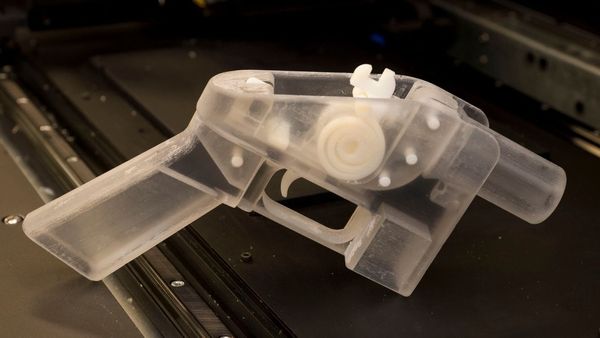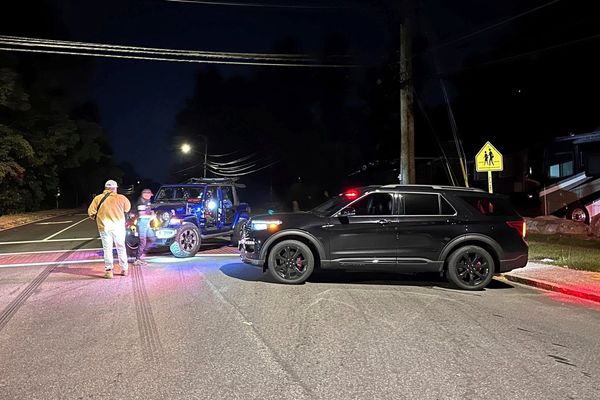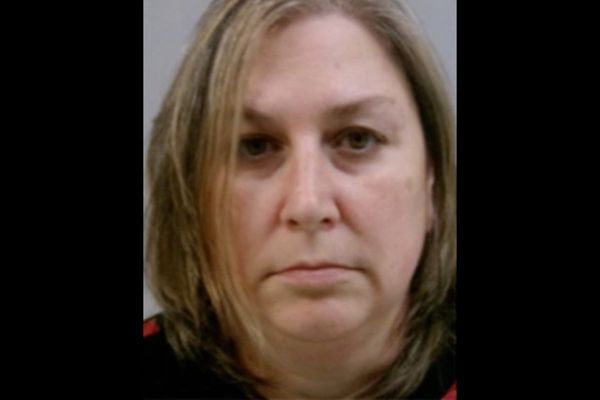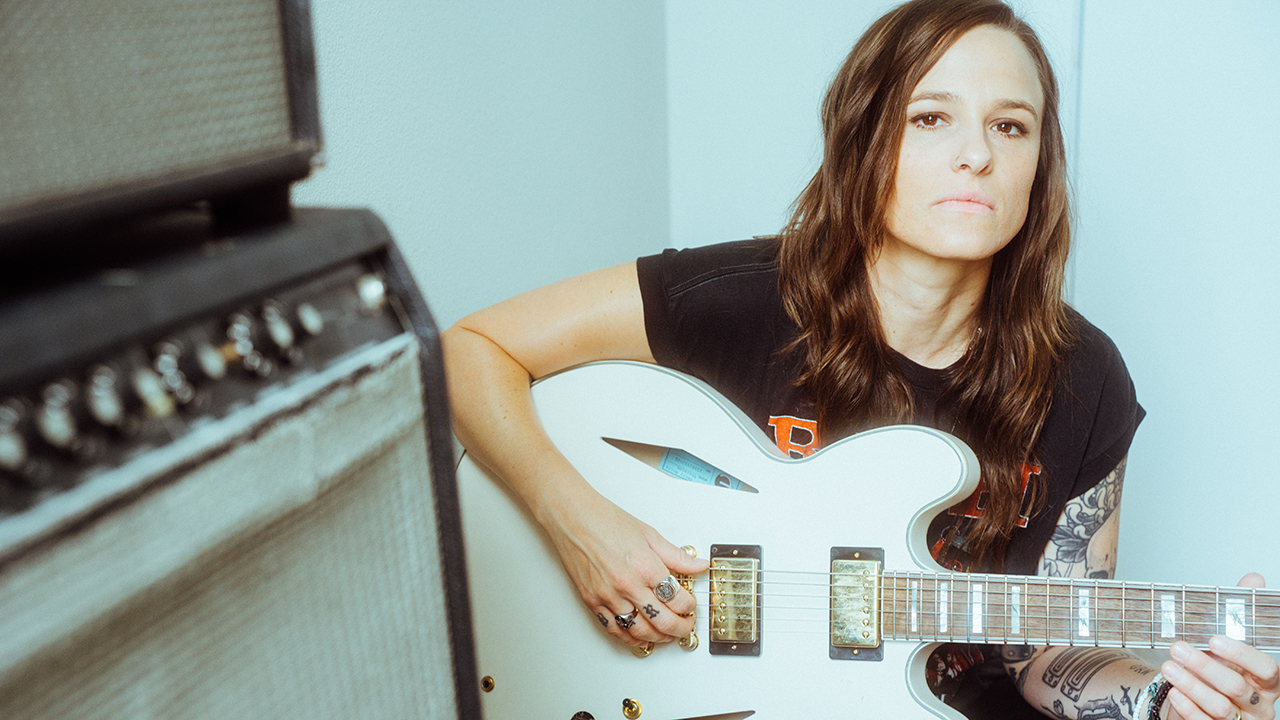
This article is part of Guitar World's series of interviews and features with artists addressing and raising awareness around themes of mental health, particularly as they relate to musicians.
As a musician and songwriter, Emily Wolfe creates riff-heavy textures as much as she creates melodic songs, and both are key to conveying her messages. Her new album, The Blowback, follows the same trajectory; however, the creative process comes from a different and difficult place.
This time, Wolfe tackles sexual assault, reproductive rights, political activism, and mental health through bold lyrics and assertive guitar passages.
“I was going through a lot at the time I wrote this album,” she says. “I needed to expel some energy and feelings. The initial intent was to get that out into music, and when we finished the recording, maybe it would help other people who are going through similar things.”
Wolfe took over the producer’s chair for the first time, a task that required guiding herself artistically. “I planned out everything on this album,” she says, “so that when I went into the studio, it wasn't a playground of rabbit holes.
”I knew this record was going to be so important for me to get right that I almost had to be strict with myself in that way. It was like mental gymnastics, but it was fun and challenging.”
In the short documentary about making this album [premiered at Sound Unseen in Austin in December 2023], you said, “I feel the weight of the world on me right now.” How was your mental health going into recording and how is it now?
”I did feel the weight of the world because the songs are really intense and a lot of them touch on themes of sexual assault. I was in a position where I had to write about them to maintain my sanity.
”I wanted to make sure I sang and performed in a way that the victim of this particular situation I was singing about would feel some form of justice. As a victim, it’s tough to be believed – there's a lot of victim-blaming, a lot of hoops you have to jump through. The only form of justice I felt was putting everything I had into this album.
”My mental health now is good. Putting this album out really helped, because it felt like a yearlong process of emotional ups and downs. Once it came out, the weight was lifted because what I wanted to say was finally out in the world, and people can use it however they need to.”
You have spoken about how difficult it was growing up in a small, conservative town, feeling insecure in high school, thinking everyone else had it “figured out.” When you look at your audience – many of them experiencing the same things – does it bring a lot of it back?
”Whenever I look out into the audience and see kids I truly identify with, I try my best to sing to them and for them, because I didn’t have that. For kids who are going through what I went through at that age, it's got to be so much harder now because of social media and online bullying.
”Everything is at the tip of their fingers in terms of ’I can look anything up on my phone,’ but there’s also this pressure to keep up with appearances online. There are so many things I didn’t have to deal with, and I feel for these kids because it’s got to be ten times worse.
”A lot of times people will come up to me and say, ’You got me into music and now I play music.’ That’s how I healed from everything in my past. It’s still how I heal from things in my past. I turn to music for everything I feel. If I talk about these things in interviews, and if I write songs about these things from the perspective of a queer woman, and I’m as truthful as I can be, I feel like that will ultimately help people. ”
How do you feel about music as a safe space?
”As a teenager who was very much closeted, growing up in church, there was no rulebook for me to turn to as a queer person. All I saw around me was heteronormative things and boxes to fit in, and I never fit in any of them. And then I struggled with addiction for several years and got sober – February is nine years – and had medical issues from all of that.
”There was always something that kept me pushing through these things, and it was music, it was writing songs, and the people in my life who are truly supportive in terms of having my best interests at heart. I look back at the things I went through, and they sucked in the moment, but I am the person I am today because of those experiences. They’ve made me stronger and more empathetic.”
Does the guitar express what you need to say as much as the lyrics?
The moments when the guitar comes out, it needs to say something… There was so much experimentation with tones, and I wanted it to have a specific sound
”Oh, for sure. Even more so, because when I was a teenager, I was too shy to sing, so I would just play guitar alone in my room. The only language I knew how to speak musically was guitar.
”There's a solo in Predator that I’m really proud of because the note choices perfectly encapsulate what I was trying to get across. There’s weird notes which mirror how weird I felt throughout that whole time. There’s odd note choices, but there’s also a woody, tinny tone to it that reflects what my brain was going through, which was total disassociation and also real confusion.
”Solos are where I get to say things that words cannot express. A lot of the guitar solos on this album are there for that. ’Here’s a way to reflect the pain I’m feeling. I can’t find the perfect words, so here’s a guitar solo that explains it.”
Is it fair to say this is as much a guitar album as a singer-songwriter album?
”For sure. It’s flooded with guitars, but as the producer, the most important thing for me was to keep the songs as to the point as possible. The melodies and hooks were paramount, whereas my other albums were very much guitar albums.
”I'm proud of the first two records, but this one I wanted the songs to be at the forefront and the guitar to support that. The moments when the guitar comes out, it needs to say something, so it’s a guitar album in that way, and in the way that the tones are so interesting. There was so much experimentation with tones, and I wanted it to have a specific sound.”
How do you protect yourself mentally and emotionally when you perform these songs?
With everything I’ve gone through in my life, I’ve had moments where I didn’t know if I deserved to be on this planet or if felt like I belonged here
”I was afraid of that when we started performing these songs live. I was like, ‘I don’t know what I’m going to do. Am I going to be all right?’ The more I play them, the less intense they feel for me.
”But the first time I played Silencer live… there’s a moment after the bridge, when it kind of comes down, that really hits me. I have to take a break. My drummer, Johnny Radelat, does a four on the floor with the kick drum, my bass player, Evan Nicholson, rides one note, and they’ll let me have a moment so I can collect myself and finish the song.
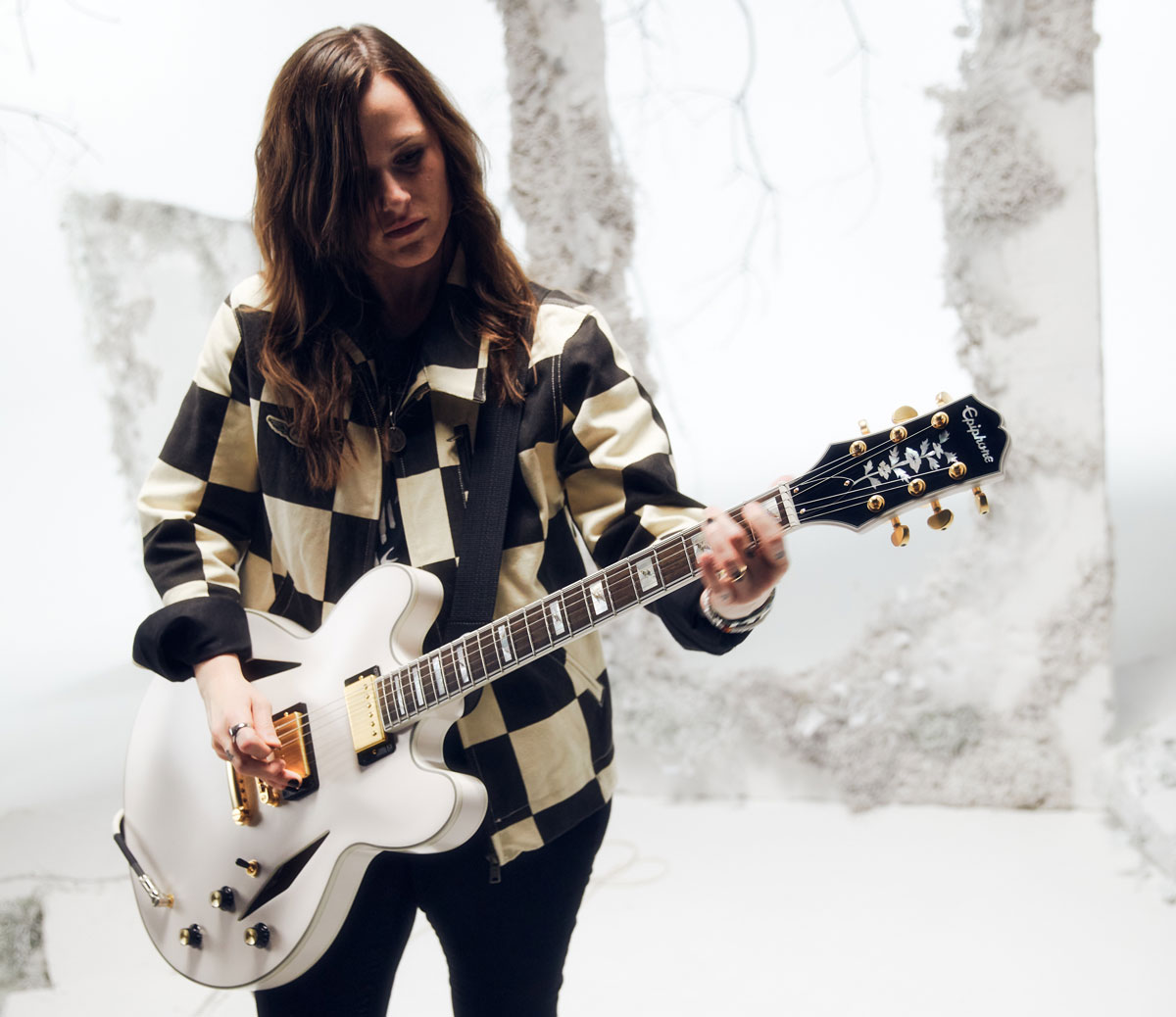
”Evan went through this situation with me, because this album is about something that happened on the road, and I had to cancel my tour because of it. So it does feel like I’m not at all alone in it when I’m performing these songs.
“It is hard, but there's also so much freedom in it because I get to call out wrongdoing and injustice. I get to be really angry, and there’s a place for it for me. I’ve turned all this pain into art that hopefully can help other people. It’s tough, but it’s a beautiful experience. I love playing the new songs live.”
You performed at the 2023 World Suicide Prevention Day benefit. How did you get involved?
”I was on tour with The Gaslight Anthem. we played a show in Charlotte, North Carolina, and there were some people from the Suicidology organization there. They reached out and I was like, ‘Of course.’ I love supporting causes like that.
“With everything I’ve gone through in my life, I’ve had moments where I didn’t know if I deserved to be on this planet or if felt like I belonged here. I’m not by any means healed from my past, but I do feel it’s one day at a time. Music is such a healing thing that if I can play it for a benefit that will help people, that’s the best-case scenario, because that’s what I feel I was put on earth to do.”
- The Blowback is out now, and Wolfe tours Europe with The Gaslight Anthem starting in March. Visit her website for full details.
